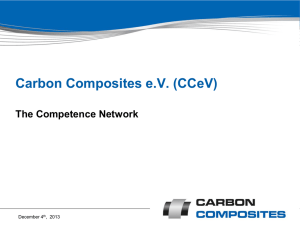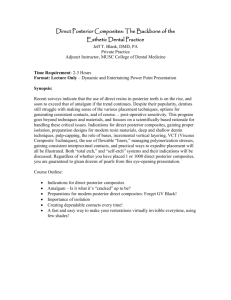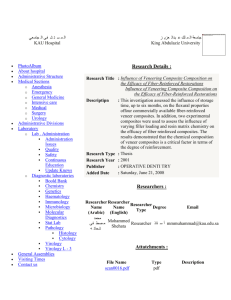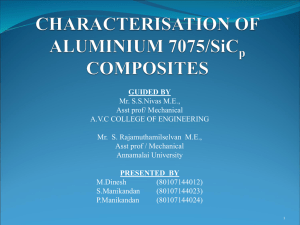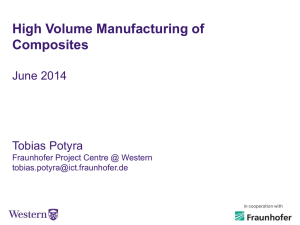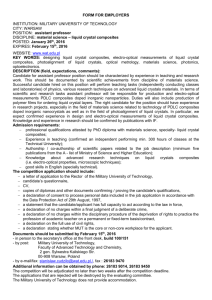Mechanical and Thermal Characterization of Bio
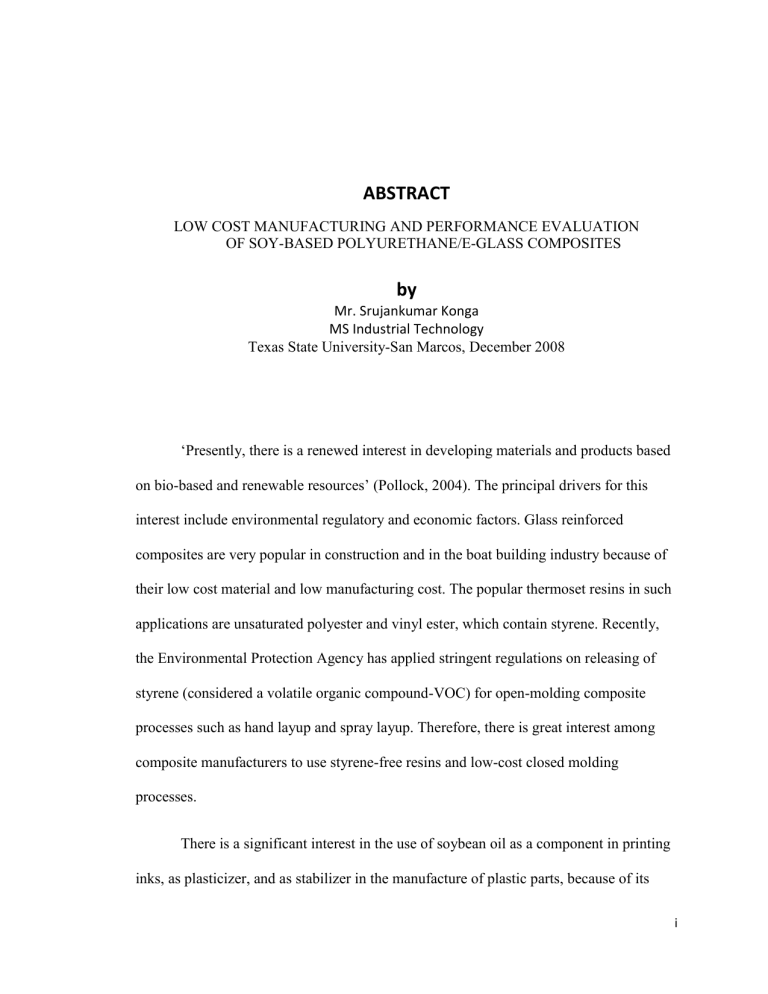
ABSTRACT
LOW COST MANUFACTURING AND PERFORMANCE EVALUATION
OF SOY-BASED POLYURETHANE/E-GLASS COMPOSITES
by
Mr. Srujankumar Konga
MS Industrial Technology
Texas State University-San Marcos, December 2008
‘Presently, there is a renewed interest in developing materials and products based on bio-based and renewable resources’ (Pollock, 2004). The principal drivers for this interest include environmental regulatory and economic factors. Glass reinforced composites are very popular in construction and in the boat building industry because of their low cost material and low manufacturing cost. The popular thermoset resins in such applications are unsaturated polyester and vinyl ester, which contain styrene. Recently, the Environmental Protection Agency has applied stringent regulations on releasing of styrene (considered a volatile organic compound-VOC) for open-molding composite processes such as hand layup and spray layup. Therefore, there is great interest among composite manufacturers to use styrene-free resins and low-cost closed molding processes.
There is a significant interest in the use of soybean oil as a component in printing inks, as plasticizer, and as stabilizer in the manufacture of plastic parts, because of its i
environmentally friendly, biodegradable, and non-corrosive properties (Amendment,
2006). Two-part thermoset polyurethane (PU) contains polyol and isocynate. In the proposed research, soy-based polyol will be used to formulate PU resin. Further, this PU resin will be used to produce E-glass reinforced composites using a low-cost Vacuum ii
Assisted Resin Transfer Molding (VARTM) process. VARTM has been established as a lowcost closed molding process having capability to produce large and complex parts. The literature indicates that mechanical properties of PU composites are comparable to vinyl ester composites and superior to unsaturated polyester composites (Sherman, 2004; Tate, Massingill, Patel, Rikka, and Arabie, 2007). Another major advantage is that PU does not contain styrene. Thus, E-glass reinforced PU composites would provide a viable alternative to polyester and vinyl ester composites. The overall objective of this research is to manufacture PU composites using a lowcost VARTM process, and to carry out a detailed mechanical characterization. Mechanical characterization includes tension, compression, shear, flexure and inter laminar shear strength tests.
Three different polyurethane/E-glass composites were manufactured using soy-based polyol. Those are ‘lab prepared’ (N type composites), ‘Vikol-1’ (P type composites), and
‘Soypolyol DB-5’(S-type composites). The ‘Lab prepared’ polyol was made in IEIS (Institute of
Environmental and Industry Science) in the Center for Coatings and Bio-Based Technology
(CCBT) lab at Texas State University-San Marcos under supervision of Dr. Massingill. Arkema,
Inc. supplied ‘Vikol-1,’ and ‘Soypolyol DB-5’ polyols, which are development grade materials.
‘Soypolyol
DB-5’ is a modified polyol that has shown considerable improvement in fiber/matrix adhesion in coating applications (Massingill, 1991; Mannari and Massingill, 2006).
This research explores whether there is any advantage in using modified ‘Soypolyol
DB-5’ in bulk form in composites. ‘Derakane Momentum 510-A40’ is a very popular vinyl ester resin made by Ashland Chemicals, Inc. (originally developed by Dow Chemical Company). It is used extensively in FRP (Fiber Reinforced Plastics) ductwork, stacks, stack liner applications, and in the handling of mixtures of air and hot gases or potentially flammable liquids. Vinyl ester/E-
3
glass composites (VW type composites) were prepared to compare their properties with soybased polyurethane composites.
The VARTM process was successfully implemented to manufacture PU/E-glass and vinyl ester/E-glass composites. When compared to other composites, VW type composites have significantly higher compressive strength, flexural strength, and flexural modulus.
Statistically, there is no difference in P-type and S-type composites in terms of compressive strength and flexural strength. But also P-type composites have significantly superior Inter laminar shear strength among all composites.
4
